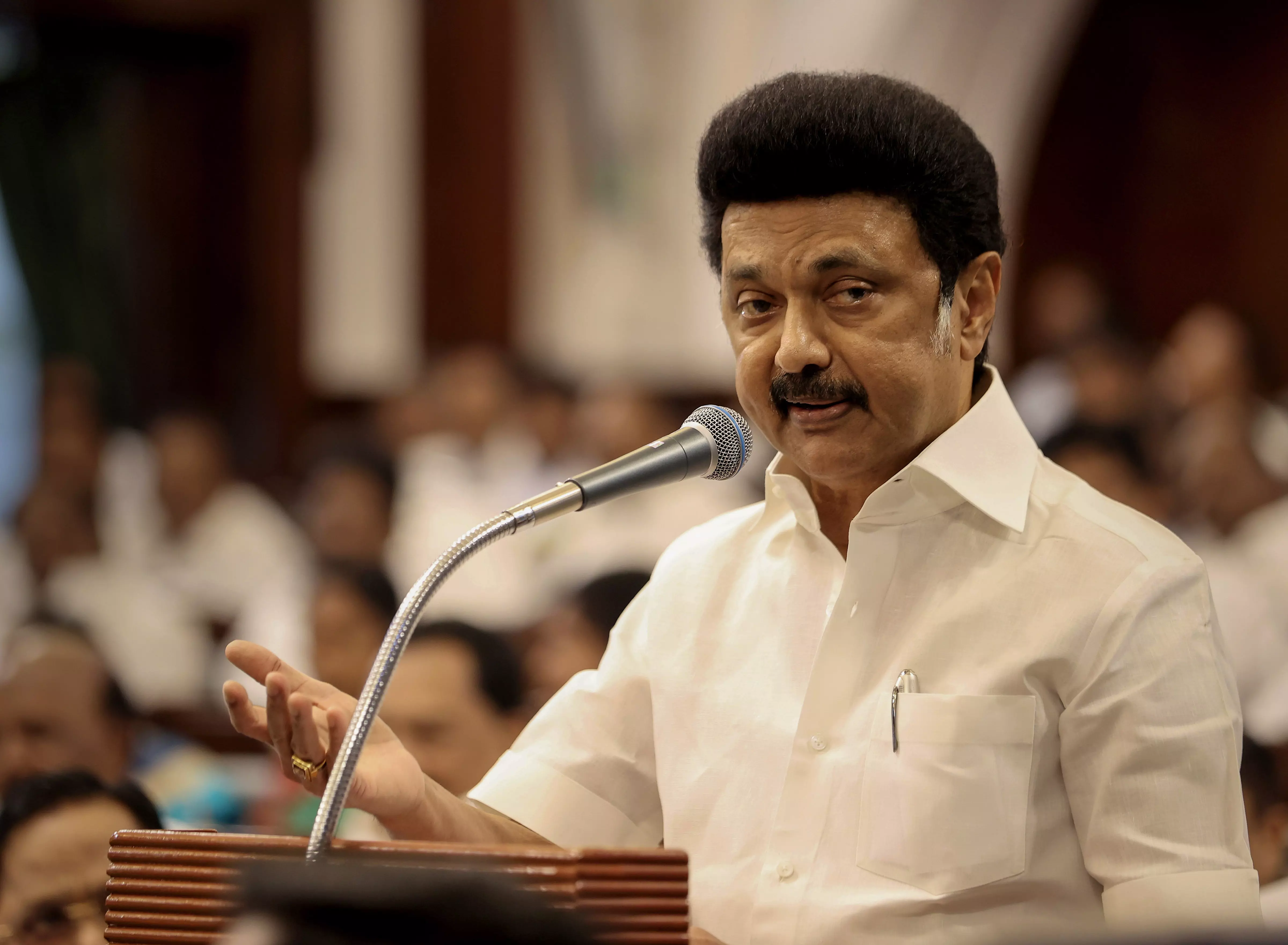
Tamil Nadu Chief Minister MK Stalin has requested the Union government to review the new enactments after taking into consideration the views of all the states and other key stakeholders. File photo
Withhold enactment of 3 new criminal laws: Stalin writes to Centre
The laws come under Concurrent List, and adequate consultation ought to have been done with all states and key stakeholders, says Tamil Nadu Chief Minister

Tamil Nadu Chief Minister MK Stalin has written a letter to the Centre highlighting several objections and operational issues faced by state governments in implementing the three new Criminal Laws, which might come into effect from July 1 this year.
In the letter on Tuesday (June 18), Stalin emphasised that though the three Acts passed by Parliament recently came under the ambit of List III (Concurrent List) of the Constitution of India, the States and the opposition parties were not given sufficient time to study the new laws and provide their valuable input.
The TN chief minister has therefore requested the union government to withhold the enactment of the said laws and to carry out a thorough review after taking into consideration the views of all the States and the key stakeholders.
What Stalin's letter said
In his letter to the Centre, Stalin said:
"I wish to bring to your kind attention certain objections and issues faced by the State in the implementation of the three new Criminal Laws enacted by the Union Government repealing the existing Indian Penal Code, 1860, the Code of Criminal Procedure, 1973; and the Indian Evidence Act, 1872, which are likely to come into effect from 01.07.2024.
1. The replacement of the above-mentioned three Acts has been done in haste without adequate deliberations and consultations. These enactments are falling within List III – concurrent list of the Constitution of India, and hence, extensive consultation ought to have been done with the State Government. The States were not given adequate time to express their views and the new laws were passed by the Parliament without the participation of the opposition parties.
2. The three Acts namely Bharatiya Nyaya Sanhita (BNS), 2023; Bharatiya Nagrik Suraksha Sanhita (BNSS), 2023; and Bharatiya Sakshya Adhiniyam (BSA), 2023 are all named in Sanskrit, which is in clear violation of Article 348 of the Constitution of India. It is mandatory that all Acts passed by the Parliament shall be in English.
3. In addition, there are some fundamental errors in these enactments. For instance, Section 103 of Bharatiya Nyaya Sanhita (BNS) has two subsections for two distinct classes of murder but having the same punishment. There are some more provisions in BNSS and BNS which are ambiguous or self-contradictory.
4. Moreover, the implementation of these new laws will require discussions with academic institutions and revision of syllabus for Law College students which require sufficient time. The capacity-building and other technological requirements for the stakeholder departments, i.e., Judiciary, Police, Prisons, Prosecution, and Forensics need sufficient resources and time. It is also imperative to frame new rules and revise the existing forms and operating procedures in consultation with stakeholder departments which cannot be done in haste.
In the light of the above, I request the Union Government to review the new enactments after taking into consideration the views of all the States and other key stakeholders and withhold the aforesaid enactments already notified."
Next Story

